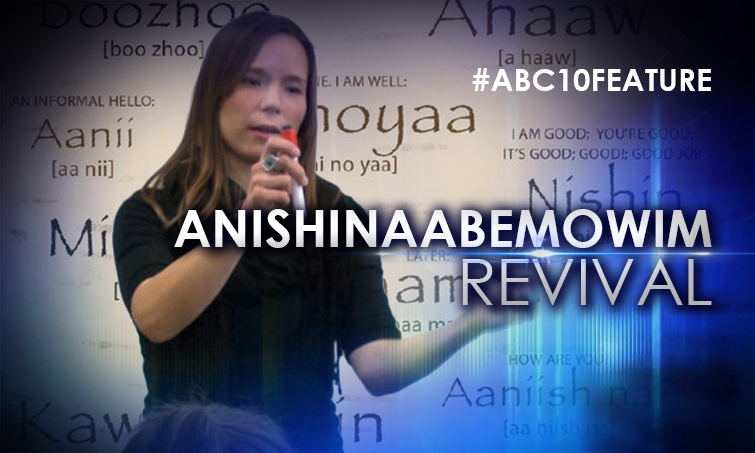Reviving the Anishinaabemowim language | ABC 10 Feature

MARQUETTE– For many people in the Upper Peninsula, it’s a struggle to live without their cultural language.
However, there is a push to change that and teach Native Americans their language and culture.
At Northern Michigan University, these students are not taking a French or Chinese language course; they’re learning Anishinaabemowim, a language of the Ojibwa, Potawatomie, and Odawa Indians.
“The revitalization of the culture and the language here up at Marquette and Northern Michigan University is really important to me,” said Joe Biron, a member of the Sault Tribe of Chippewa Indians, “because I’ve never been educated on the subject through my high school and elementary years.”
Many young Native Americans are growing up without the language, making it much harder to connect with their culture and heritage.
“Learning the language is the most important thing, because as you heard Leora say, all of our stories, everything that we know, everything that you to know is done through the language,” said Matthew Williamson, language learner. “It’s not written down, you have to go to elders, you have to go to these areas to learn the language, to learn the stories.”
There are probably less than 50 First Speakers left in Michigan, and many are above 60.
First speakers are individuals who grow up with Anishinaabemowim as their first language and then learn English later. Native American communities around the America’s lost their languages and cultures not by accident, but because it was taken from them.
“Because of the onslaught of European culture the ideas that were stripped away from us, our own cultural identity,” said Dr. Marty Rhineheart. “There was a conspiracy amongst European colonizers that they would kill to save the man and so the idea was to strip away our culture and by not allowing us to speak our language, that was one of the ways they tried to accomplish that.”
However, the language has survived and is making a comeback.
“When we revitalize our language, it’s really a matter of revitalizing our culture, it’s a core component of our cultural identity, said Dr. Rhineheart. “It’s kinda funny when you see how the language is growing and that’s a good sign, it’s a sign of a healthy language when the language adapts to new circumstances.”
